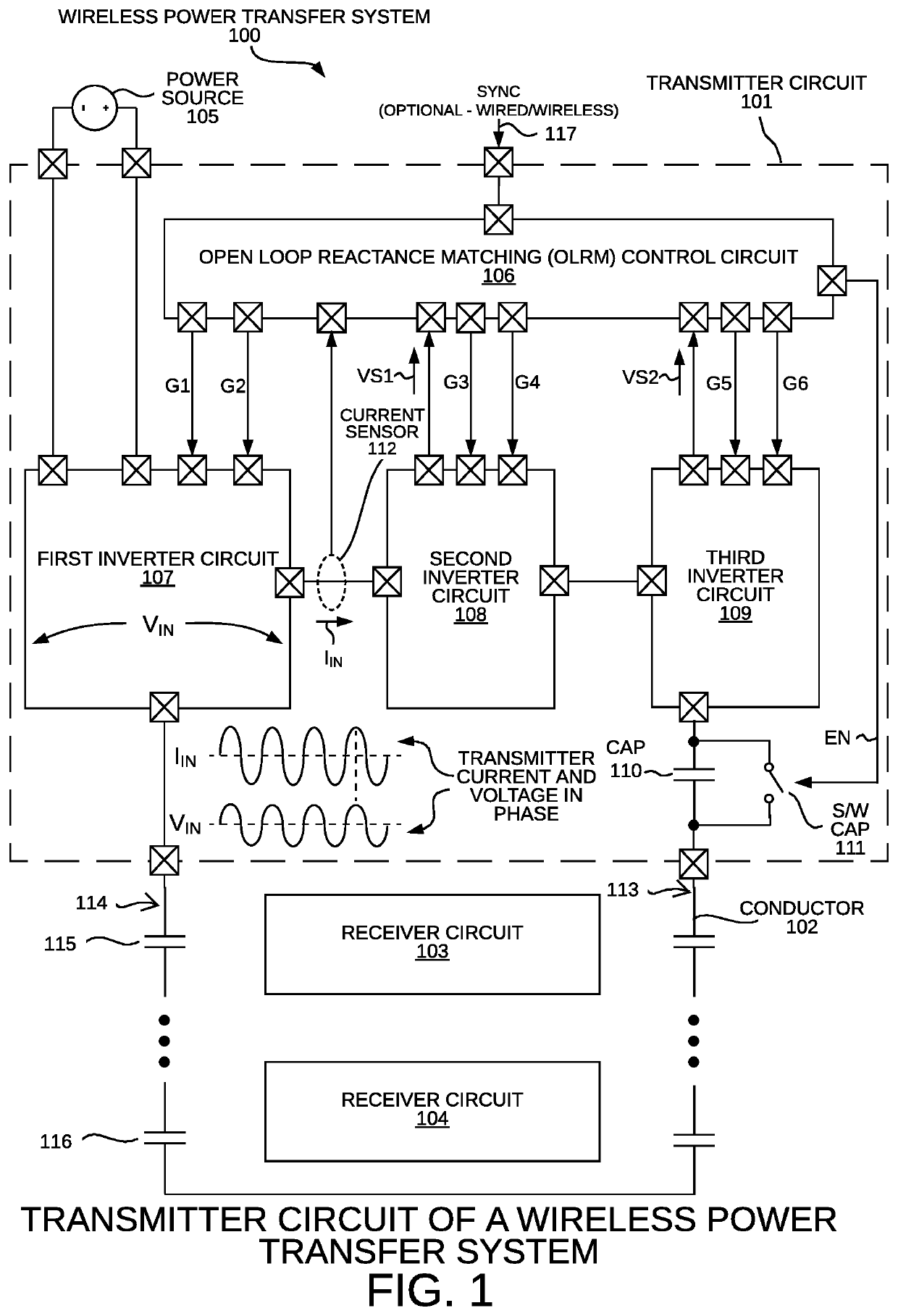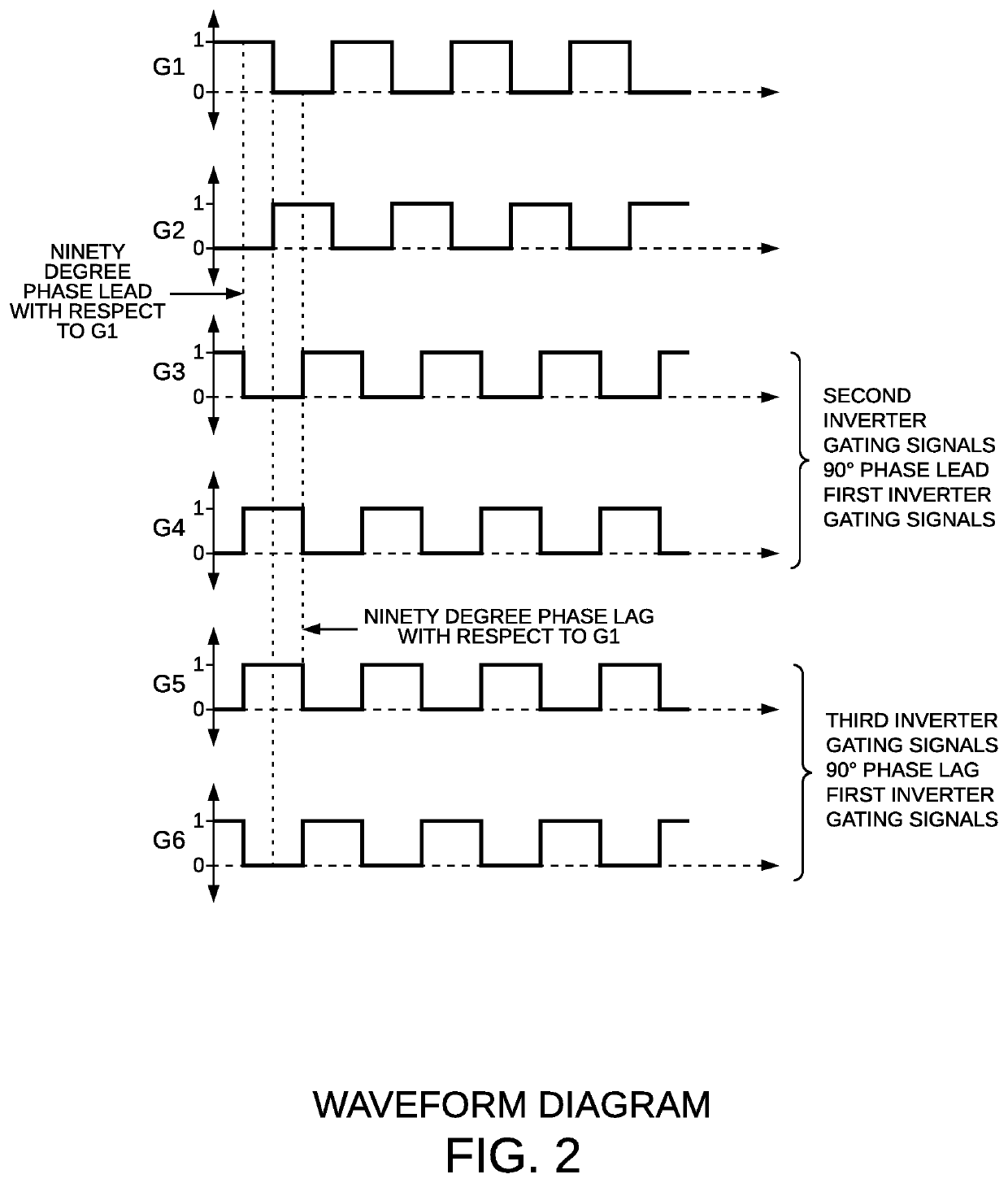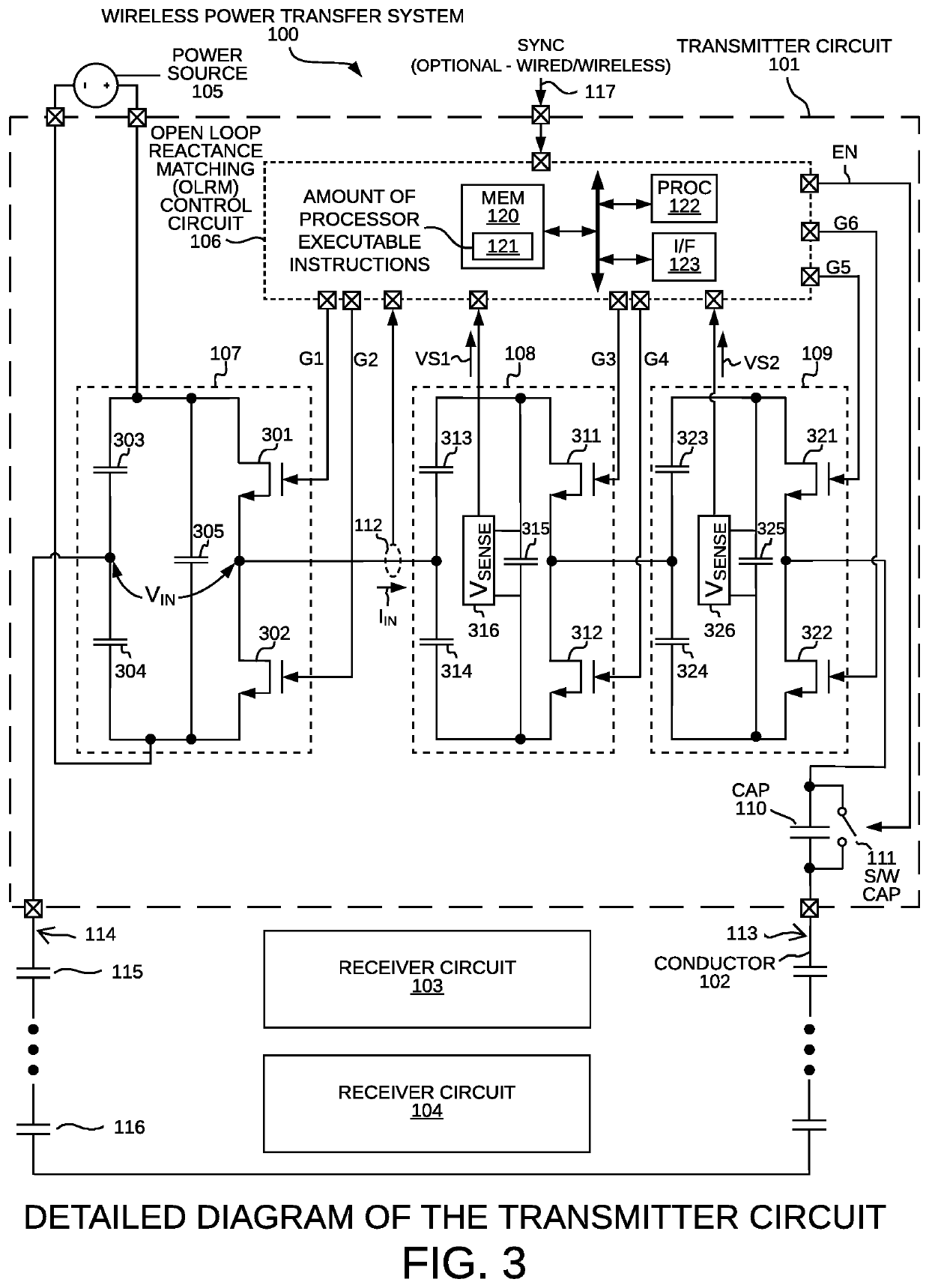Wireless Power Transfer System With Open Loop Reactance Matching Circuitry
a technology of reactance matching and wireless power transfer, applied in the field of power electronics, can solve the problems of affecting the performance of the controller, high driving voltage, and inability to design a robust close-loop controller, so as to improve coupling, reduce the effect of magnetizing inductance, and improve the coupling
- Summary
- Abstract
- Description
- Claims
- Application Information
AI Technical Summary
Benefits of technology
Problems solved by technology
Method used
Image
Examples
Embodiment Construction
[0038]Reference will now be made in detail to some embodiments of the invention, examples of which are illustrated in the accompanying drawings.
[0039]FIG. 1 is a diagram of a wireless power transfer system 100. The wireless power transfer system 100 comprises a transmitter circuit 101, a conductor 102, and receiver circuits 103 and 104, and a power source 105. In this example, the power source 105 is a Direct Current (DC) source that supplies a DC voltage to the transmitter circuit 101. In other embodiments, the power source 105 is an Alternating Current (AC) source that supplies an AC voltage to the transmitter circuit 101. The transmitter circuit 101 supplies the receiver circuits 103 and 104 wirelessly via the conductor 102. The transmitter circuit 101 comprises an Open Loop Reactance Matching (OLRM) control circuit 106, a first inverter circuit 107, a second inverter circuit 108, a third inverter circuit 109, a capacitor 110, a switch 111, and a current sense circuit 112. The fi...
PUM
 Login to View More
Login to View More Abstract
Description
Claims
Application Information
 Login to View More
Login to View More - R&D
- Intellectual Property
- Life Sciences
- Materials
- Tech Scout
- Unparalleled Data Quality
- Higher Quality Content
- 60% Fewer Hallucinations
Browse by: Latest US Patents, China's latest patents, Technical Efficacy Thesaurus, Application Domain, Technology Topic, Popular Technical Reports.
© 2025 PatSnap. All rights reserved.Legal|Privacy policy|Modern Slavery Act Transparency Statement|Sitemap|About US| Contact US: help@patsnap.com



